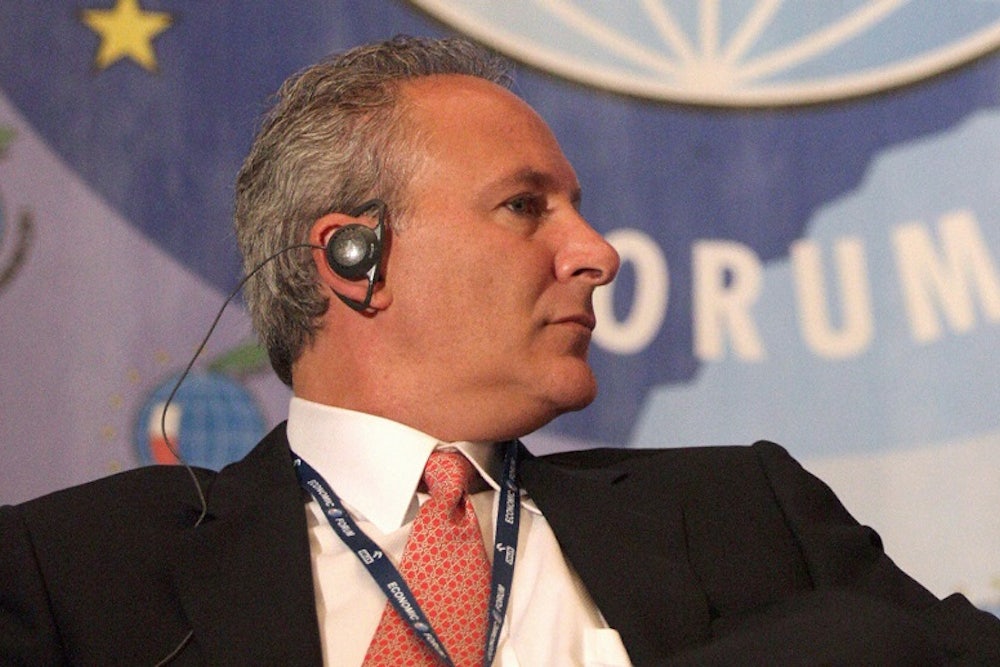Peter Schiff is one of the most famous investors in America. He might also be the person most wrong about America's economic struggles. In 2009, Schiff not only warned of impending inflation but said it was already upon us. “An inflationary depression is going to be a protracted period of economic decline accompanied by rapid increases in consumer prices,” he said. “So, it’s going to be something like the stagflation of the 1970s, only much more stagnation, or outright contraction of the economy, with the cost of living increases even more rapidly than it did then.”
Anyone who has followed the economy in the ensuing years knows that those rapid prices increase haven’t happened. Inflation has run below the Federal Reserve’s 2 percent target for years. In fact, the challenge has been how to raise inflation so that businesses and consumers spend money to get the economy back going.
Schiff isn’t convinced by any of this though. In the newest issue of Reason, the libertarian magazine, he “responds” to his critics:
Back in 2009, when the federal government began running trillion-dollar-plus annual deficits and the Federal Reserve started printing trillions of dollars to buy Treasury debt and subprime mortgages, economists debated whether much higher inflation was inevitable. Mainstream economists (who hold sway in government, the corporate world, and academia) argued that as long as the labor market remained slack, inflation would not catch fire. My fellow Austrian economists and I loudly voiced the minority viewpoint that money printing is always inflationary-in fact, that it is the very definition of inflation.
Today, with price inflation still not rampant, it's hard to ignore the victory chants coming from the White House press room, the minutes of the Federal Reserve's Open Markets Committee, the talking heads on financial television, and the editorial pages of The New York Times. They claim that the Fed's extraordinary monetary policy and the government's fiscal stimulus have succeeded in keeping the economy afloat through the Great Recession without sparking inflation in the slightest. Deflation, they argue, is still the bigger threat. Their claims of victory are premature and inaccurate. Inflation is easy to see in our current economy, if you make a genuine attempt to measure it.
Schiff goes on to cite the Big Mac index, which is a statistics the The Economist created 17 years ago to compare the price of Big Macs in different currencies. It's supposed to be a simple, unscientific way to compare prices across countries. Schiff argues that the “sandwich, which reflects the average person's direct experience, may be a more accurate yardstick of inflation.” This is wrong in so many ways. Most notably, the Big Mac index isn’t a measure of inflation.
Furthermore, if Schiff wants a metric that takes into account prices of everyday items—lettuce, tomato, bread, ground beef, etc.—he should look no further than the consumer price index. If you want to know how much different categories of food, for instance, are accounted for in the CPI, the Bureau of Labor Statics has released that info. The Massachusetts Institute of Technology has created a separate inflation measure: The Billion Prices Project tracks prices online through massive retailers that have significant market share. The project only further confirms the accuracy of the CPI.
It’s hard to think of any theory that has been more clearly disproven over the past six years than the right wing’s inflation paranoia. But the fanatics are not giving up. Is there any evidence at all that would convince Schiff—and his many followers—he’s wrong?
